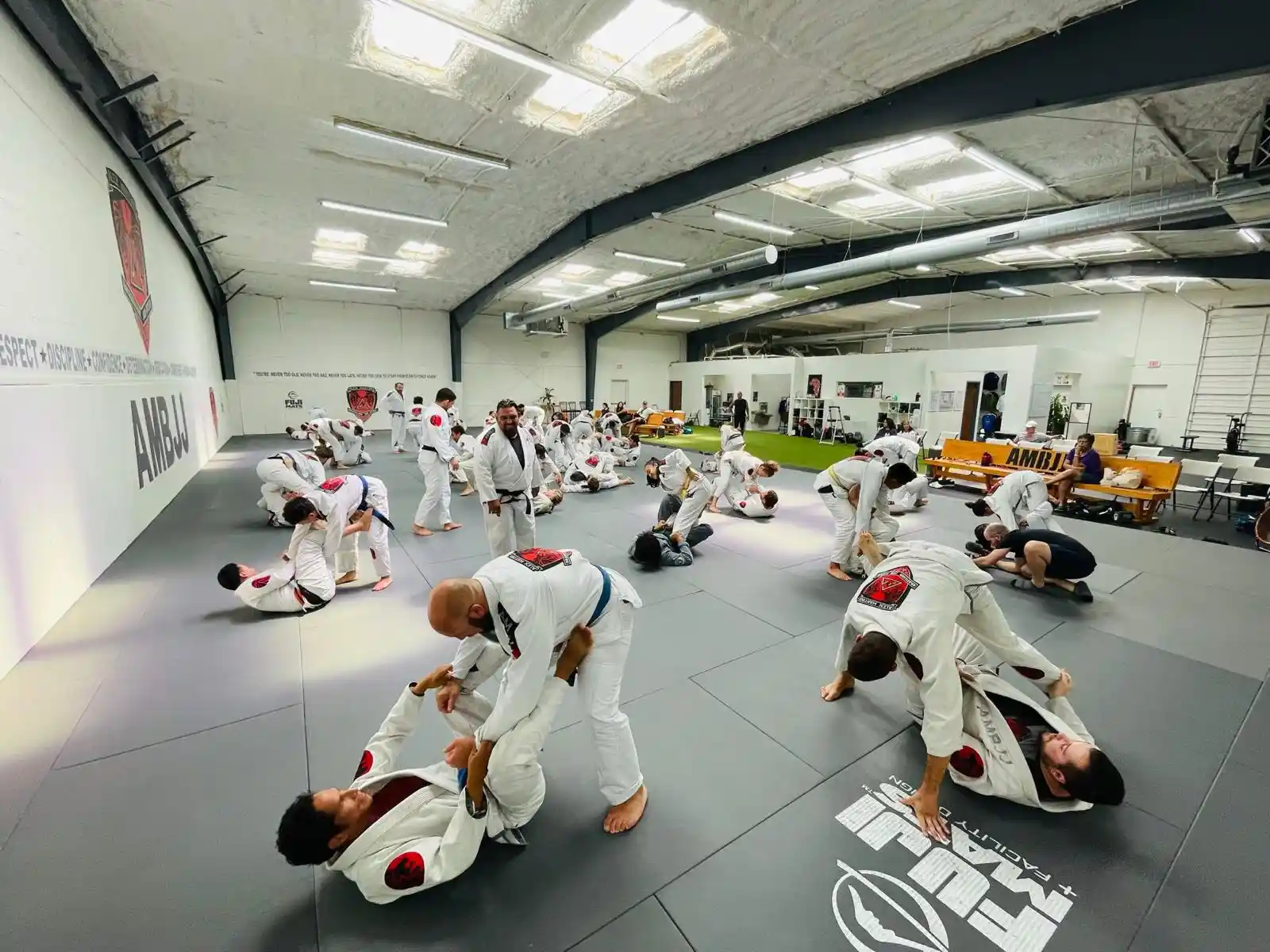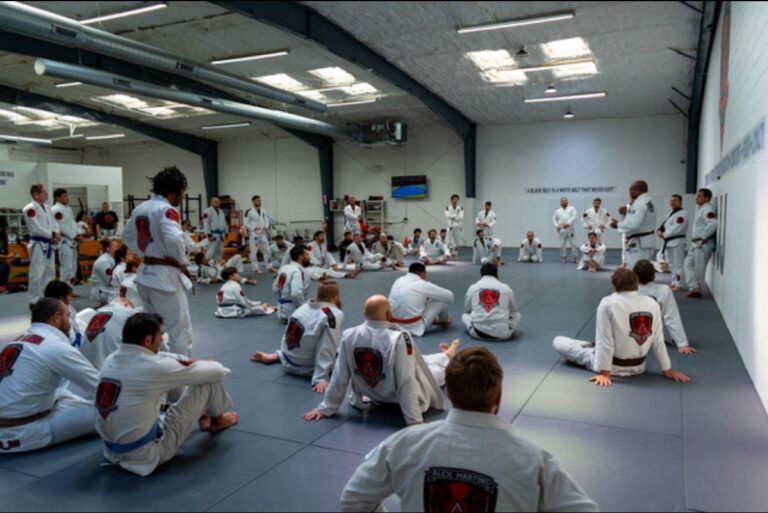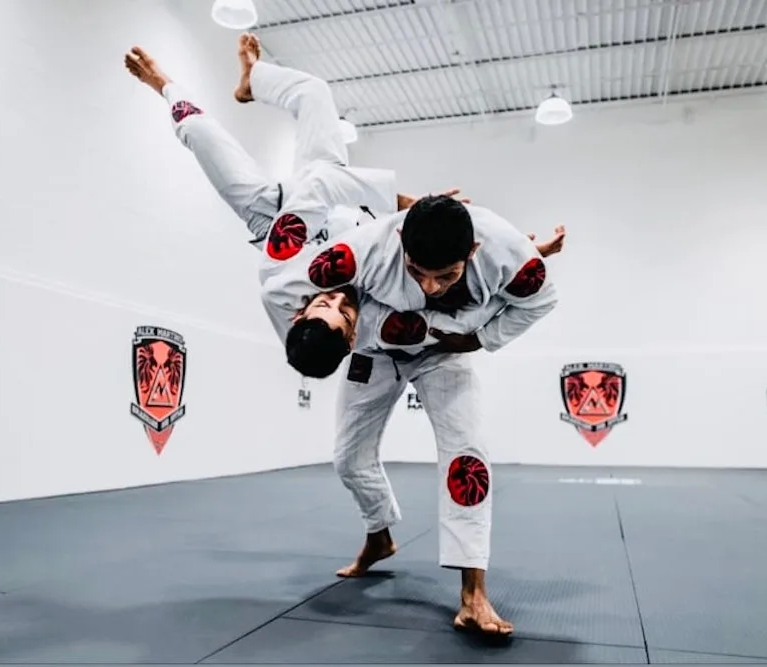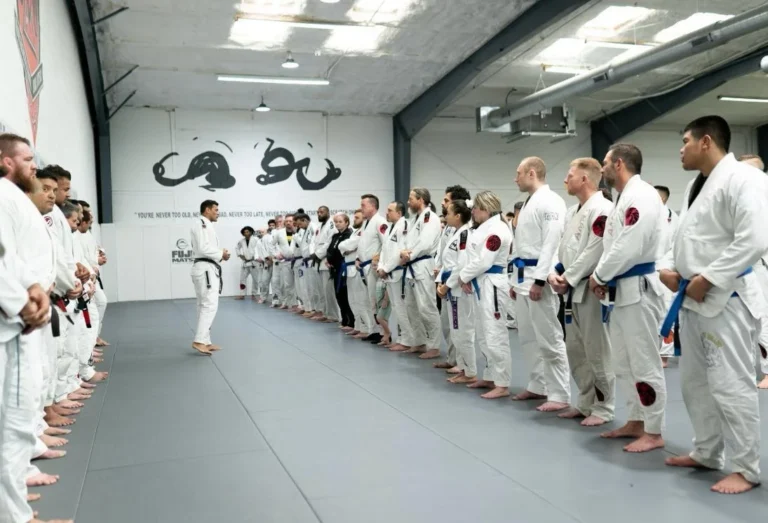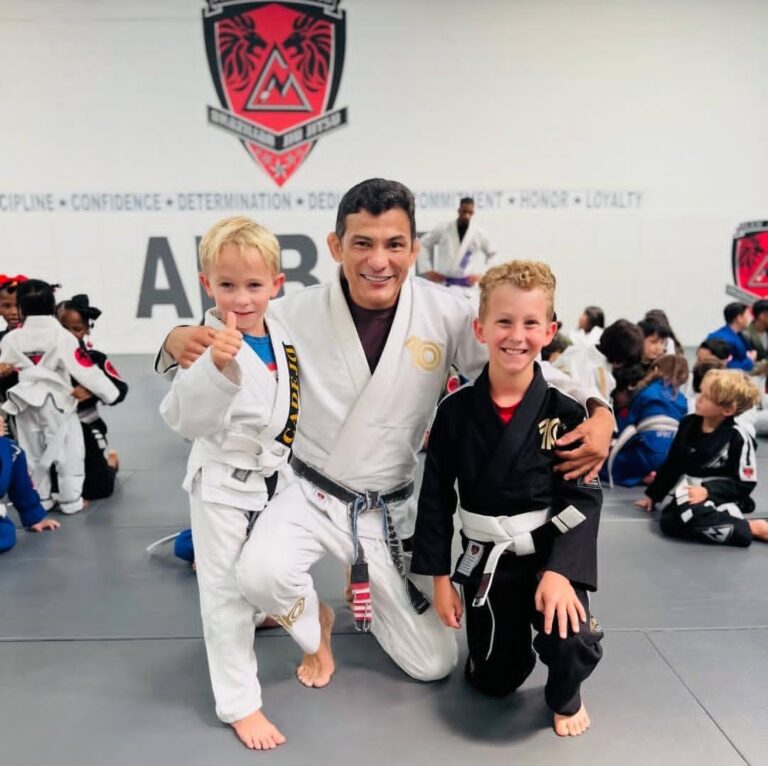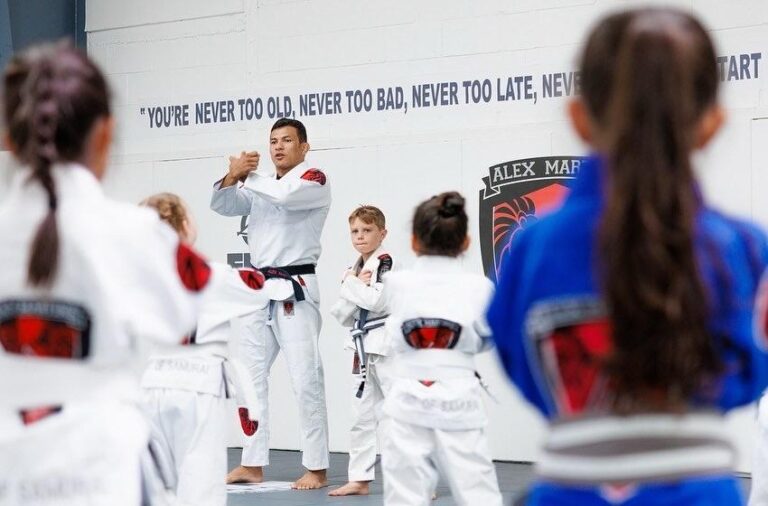Top 8 Mistakes Every Jiu-Jitsu Beginner Commits in Dallas (and How to Fix Them)
Starting Brazilian Jiu-Jitsu (BJJ) is an exciting and transformative step. However, the initial phase can feel overwhelming. The learning curve is steep. New practitioners in Dallas often face a flood of new techniques and concepts. It is completely normal for everyone to make mistakes during this period. Mistakes are simply opportunities for learning. Recognizing these common errors helps you fix them quickly. This will accelerate your progress on the mat significantly. At Alex Martins BJJ in Dallas, we guide beginners through this crucial stage. We turn initial frustrations into long-term success. Understanding the typical beginner pitfalls is the best way to avoid them entirely.
bjj classes in dallas
The Foundation: Mental and Positional Errors
Many beginner mistakes start not with a physical failure, but with a mental or positional misunderstanding. These foundational errors slow down development. Addressing them early on is vital for a rewarding BJJ journey.
1. Relying Too Much on Brute Strength (Instead of Technique)
This is arguably the most universal beginner mistake. New students often try to muscle their way out of bad positions. They use explosive force for submissions. They rely on strength because it is familiar. This tendency is counterproductive. BJJ is designed to defeat brute strength using leverage and precise timing.
The Problem: Using strength burns energy rapidly. It leaves you exhausted quickly. It often exposes you to simple, sophisticated counterattacks from skilled opponents. Furthermore, it completely ignores the core philosophy of BJJ.
The Fix: You must focus entirely on leverage and technique. Slow down your movements. Think about where your opponent’s weight is distributed. Look for the path of least resistance. Embrace the grind. Let technique do the work. The goal is to move your body efficiently. This saves your energy for the entire training session.
2. Missing the Warm-up and Neglecting Flexibility
Some beginners view the warm-up as mere filler. They might skip the first few minutes of class. They do not realize the crucial role the warm-up plays. Flexibility training is also often ignored. This mistake leads directly to injuries. It also hampers technical execution.
The Problem: Insufficiently warm muscles are prone to tears and strains. BJJ requires complex movements. It puts joints in precarious positions. Neglecting flexibility limits your ability to execute techniques. You may struggle with getting your leg over an opponent’s shoulder for a triangle choke.
The Fix: Arrive early. Participate in every minute of the warm-up. View it as essential preparation. Dedicate time outside of class to mobility exercises. This includes hip openers and shoulder stretches. Your improved range of motion will make techniques easier to execute. It will also safeguard your body over years of training.
Common Technical Mistakes on the Mat
When rolling (sparring), specific technical errors appear repeatedly among new BJJ students. These mistakes often stem from trying to rush the process or neglecting defensive basics.
3. Neglecting the Escapes (Focusing Only on Offense)
Beginners naturally love submissions. They want to finish the fight quickly. This intense focus on offense often leads them to ignore defense. They might neglect escapes from the mount or side control. However, BJJ is primarily a defensive art. You must survive before you can attack.
The Problem: When caught in a bad position, students panic. They waste energy trying to escape with force. They do not have a systematic plan. This leads to quick submissions and frustration.
The Fix: Master the fundamentals of survival. Spend extra time drilling escapes from the worst positions (mount, back mount, side control). The goal in a bad position is simple: survive. Control the opponent’s arms and maintain good posture. If you can escape a position efficiently, your confidence skyrockets. Furthermore, your overall BJJ knowledge deepens considerably. You must train defense as seriously as you train offense.
4. Not Controlling Distance and Ignoring Head Position
Beginners often fail to understand the importance of spatial control. This is the difference between being safe and being vulnerable. Distance management is key. This is true whether standing or on the ground. A secondary, but related, error is giving up head and neck control easily.
The Problem: Allowing too much space enables your opponent to initiate powerful sweeps or transitions. Conversely, allowing an opponent to get too close without securing a dominant position leaves you vulnerable to submissions. Ignoring head control means you are losing a crucial battle for leverage.
The Fix: Use frames and hooks. Always maintain a purposeful distance. When on the bottom, use your arms and legs to create frames. These stop the opponent from getting chest-to-chest. When on top, use head and shoulder pressure to flatten the opponent. Never let your opponent control the centerline of your body. Maintaining good head position on top is paramount for maintaining control.
5. Rushing Submissions (Before Securing Position)
Submissions are exciting. Beginners often rush to finish. They attempt an armbar or a choke the moment they see an opening. They do this before they achieve proper positional stability. This is a crucial mistake.
The Problem: Trying to submit an opponent from a loose or unstable position gives them the perfect opportunity to escape. They can reverse the position. You might end up in a worse spot. BJJ follows a strict hierarchy: Control Position before Submission.
The Fix: Patience is your best weapon. Follow the BJJ hierarchy: Takedown, Pass the Guard, Achieve Mount/Back Mount, Submit. Get to a dominant, stable position first. Pin your opponent. Neutralize their defenses. Only then should you look for the finish. The submission will be much easier when they cannot move. This systematic approach saves energy. It significantly increases your success rate.
The Mindset: Learning and Community Errors
The correct mindset is just as important as the correct technique. Certain mental and behavioral mistakes can stall a beginner’s growth. They can even lead to burnout.
6. Comparing Your Progress to Others
The BJJ academy is full of people at different stages. Some will be more athletic. Some may have wrestling or Judo backgrounds. Comparing your Day 1 to someone else’s Day 100 is detrimental to your mental health.
The Problem: Comparison leads to unnecessary pressure. It generates frustration. It diminishes the joy of your own unique progress. It creates unrealistic expectations for your development speed.
The Fix: Focus entirely on yourself. Your only competition is the person you were yesterday. Celebrate small, personal victories. Did you survive for ten seconds longer in the mount? Did you successfully perform one hip escape? That is success. The BJJ journey is personal. It lasts a lifetime. You must appreciate your own timeline in Dallas.
7. Skipping Class After Getting Tapped Repeatedly
Everyone gets submitted (“tapped out”) in BJJ. Even black belts tap out. Beginners often feel discouraged after a session where they were submitted many times. They might feel tempted to skip the next class.
The Problem: Skipping class immediately after a difficult session prevents crucial learning. Those tough sessions reveal your weaknesses. Skipping means you lose the opportunity to fix them immediately. It also allows self-doubt to creep into your mind.
The Fix: Show up, especially after a tough day. The most important day of training is the day immediately following a hard “rolling” session. Review the mistakes. Ask your training partner what they did. The ability to recover mentally is a key component of BJJ. Remember that tapping is a tool for learning. It is not a sign of failure. It is a sign of intelligence and resilience.
8. Not Asking Questions and Being Too Quiet
Beginners often hesitate to ask questions. They might feel nervous about interrupting the instructor. They may think their question is “stupid.” This fear is a major roadblock to quick learning.
The Problem: If you do not understand the underlying principle of a technique, you cannot execute it correctly. A technique without understanding is just movement. It is not BJJ. Remaining silent perpetuates bad habits.
The Fix: Be inquisitive and proactive. Write down three things you want to ask before class ends. Speak to your instructor or a senior student after the class. Ask why a technique works. Ask why your grip failed. Everyone at Alex Martins BJJ in Dallas is part of a community. We all help each other grow. Asking questions shows dedication. It shows a commitment to improvement.
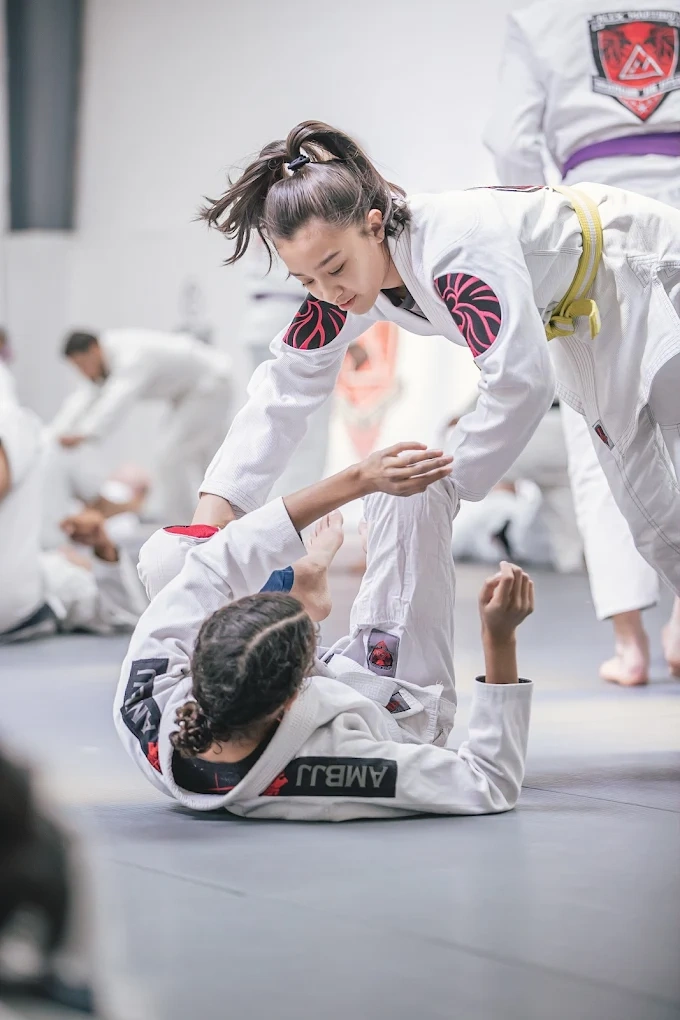
Your Path to Progress in Dallas
The first few months of Jiu-Jitsu training are the hardest. They are also the most rewarding. Every beginner makes mistakes. This is a sign you are challenging yourself. By recognizing these common errors, you can transform your approach. Focus on technique over strength. Prioritize defense and escapes. Commit to consistency, especially on the tough days.
At Alex Martins BJJ in Dallas, we offer a structured curriculum. It is specifically designed to address these beginner pitfalls. Our instructors focus on systematic progression. They ensure you build a strong foundation. You will not just learn moves. You will learn the principles behind them.
Discover alex martins bjj in dallas
Are you ready to move past the beginner stage and accelerate your growth?
Visit Alex Martins BJJ Dallas or call us today to join a supportive community focused on technical excellence. Start training smarter, not just harder, and master the art of BJJ!

